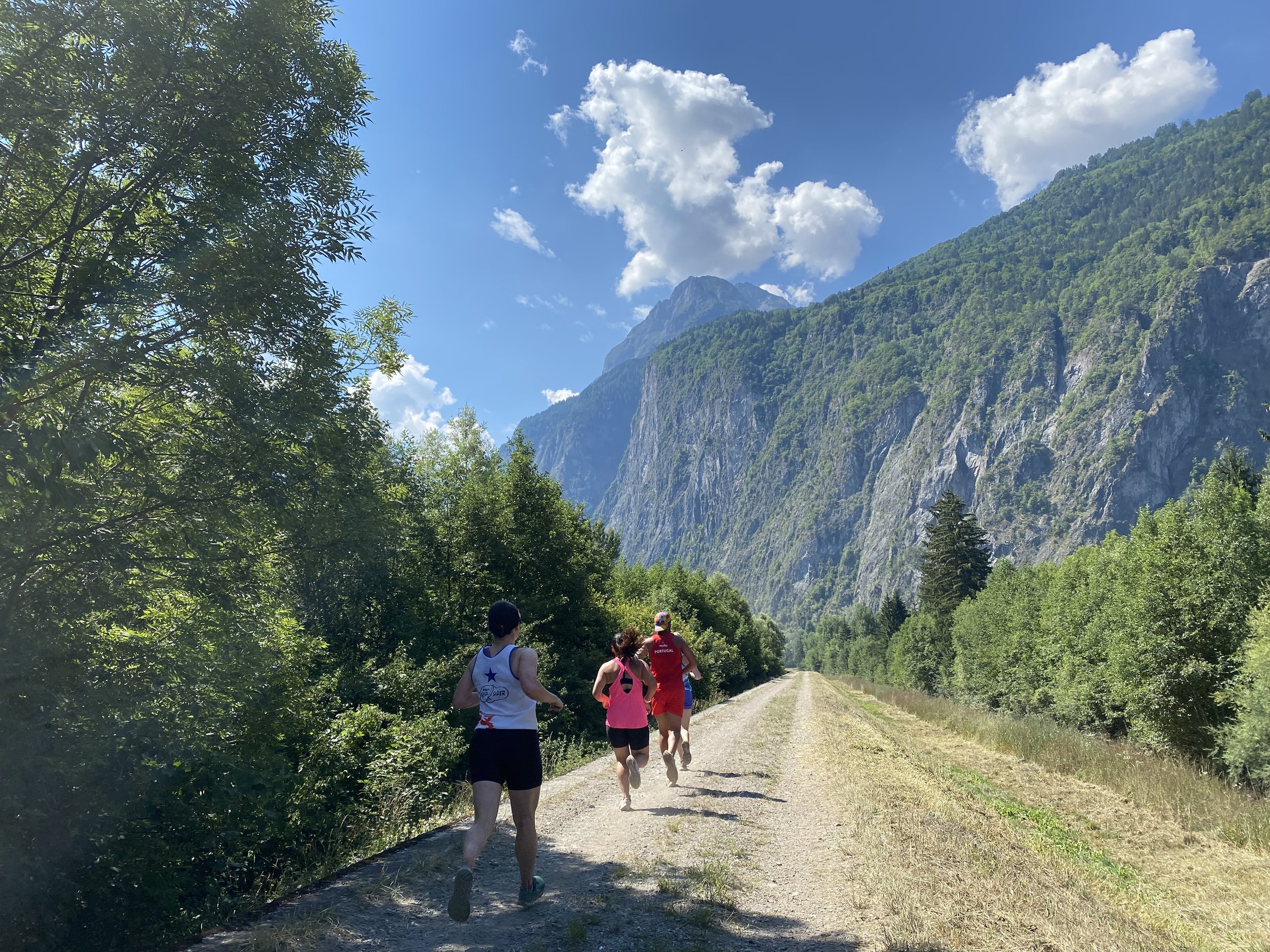What is the best gradient for hill reps?
In this article Coach Alan writes a short guide on running hill reps and running technique.
Flat or ever so slightly uphill?
What are hill reps?
We have all heard of hill reps they are useful to improve fitness and help you to run faster. Below I have split a hill-based run session up into three different types of sessions and described the potential benefits of each.
Which is the best for me?
So now the obvious question is which one of the above is the best? It depends, it depends on your running experience, training state and also what kind of run you are training towards.
Steepest - Hill Sprints (7%+ with 5 - 10sec duration)
Working on top speed
Work on acceleration mechanics
Shorter races
Steeper - Hill Repeats (4-7% over 30-90sec)
Specific strength work
Encourage higher cadence
Shallower - Hill Reps (2-5% over 2-4minutes)
Sustained efforts
Prioritise the posterior aspect of running
If you want to rapidly fire up the high force aspect of your technique with low risk and minimal dose then hill sprints are for you. If you want to work on strength and power in running along with a physically challenging session then try some steeper hill repeats. If you are aiming for longer running events which are sub-maximal in intensity then go for the shallower reps.
In terms of which one is best, if put on the spot I would say the shallower variations. The vast majority of age group athletes that I work with have poor posterior chain utilisation in their running technique and are quad-dominant whilst aiming to race over 10km or more. The longer contact time on a shallower gradient places less load on your quadriceps and allows the runner to focus on extending the stride at the rear in order to generate propulsion horizontally rather than lifting the thigh to travel vertically.
The runner is also less likely to lean into the hill and will generally be able to run with a better form for a longer period of time whilst working at an intensity more specific to their race preparation. Intensity can however be varied by the athlete and not dictated by the environment.
When is the best time to do them in preparation for an event?
Which event you are training for will have an effect on when to do each variation, however, hill reps generally are never a bad idea for an intense running session. The big difference between them and flat running is how well you run technically up the hill. Running with poor form on a hill is unlikely to have the effect you are looking for so it is vital to understand what you are trying to achieve.
So if in doubt go shallower rather than steeper, even if your ego says harder is better steeper is more… well it might be steeper but is it more of what is useful to you? Hopefully, this blog has helped you answer that question for you as an individual athlete.
If in doubt fall back to this useful saying “the shorter the race the steeper the hill’

Alan has worked with Tri Training Harder since 2014. During this time working with a wide spectrum of athletes from beginner, to youth and junior elite athletes through to 70.3 and Ironman AG winners and Ironman Kona Qualifiers.
An active Triathlon coach since 2007 Alan has been fortunate enough to work with athletes, peers and support staff who have continutally challenged him to evolve and develop. Building on a solid foundation in swimming teaching, Alan has specifically developed swimming coaching experience having worked in High Performance Swimming environments. Alan's other passion is all things fast on a bicycle!
Since 2015 Alan has worked in conjunction with the other Tri Training Harder Coaches to significantly develop collective coaching practice both on camp and online.
Visit Alan's
Coach profile
We’re here to help
Tri Training Harder are one of the leading Triathlon coaching providers in the UK, using our wealth of experience to unite scientific and technological research with already well-established and successful best practices, to create a formula for triathlon and endurance coaching that works.
The result is an honest, dynamic, yet simple new way of constructing an athlete’s training to allow them to reach their potential.
If you’re planning your next season, just starting out in the sport or are looking for extra guidance at the very top end of the field, we are here to help, and our coaches would be delighted to hear from you. You can contact us via the website, and one of the team will be in touch.


